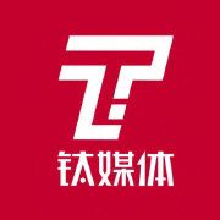来源:钛媒体
TMTPost -- Nvidia Corporation management highlights significance of China for its business even though the world’s top artificial intelligence (AI) chipmaker faces increasing competition in the market due to the tightening U.S. restrictions on semiconductor exports.

Credit:Nvidia
Kress said that Nvidia's data-center revenue in China grew sequentially in its fiscal second quarter ended July 28, and China was a significant contributor to its data-center revenue, but below prior levels, Nvidia Chief Financial Officer Colette Kress said At an earnings call. Kress said the Chinese market remains very competitive and its percentage of data-center revenue for Nvidia remains below previous levels.
"As a percentage of total data-center revenue, it remains below levels seen prior to the imposition of export controls," Kress told analysts "We continue to expect the China market to be very competitive going forward."
Nvidia’s revenue for the second fiscal quarter soared 122% year-over-year (YoY) to $30 billion, beating Wall Street expectation of $28.6 billion . Revenue from its core business data center generated $26.3 billion, a new quarterly record with a 154% YoY increase. On a sequential basis, though, data center revenue rose 16%.
Nvidia is the semiconductor designer that dominates the market for AI chips, which empower AI systems including the large language model behind ChatGPT. The U.S. Department of Commerce introduced a rule entitles “Implementation of Additional Export Controls: Certain Advanced Computing Items; Supercomputer and Semiconductor End Use; Updates and Corrections”, on October 18 2023. The rule was supposed to come into effect following a 30-day public comment period. But Nvidia disclosed on October 25 that the U.S. government informed the licensing requirements of the rule applicable to products having a “total processing performance” of 4800 or more and designed or marketed for data centers, is effective immediately.
Nvidia has modified some of flagship products including A100 and H100 for exports to China, including an alternative A800 chip, as the U.S. regulators last year banned it from selling its most advanced chips to China. But even A800, the weakened version of Nvida’s cutting-edge A100 processor, is not allowed for export without first obtaining a license according to the new restrictions.
Nvidia was said last month to be under development of a version of its latest flagship AI chips specifically for the Chinese market, ensuring compliance with current U.S. export controls. Nvidia reportedly plans to collaborate with Inspur, a major distributor partner in China, for the launch and distribution of the chip, tentatively named the "B20", and shipments of the new version are expected to commence in the second quarter of 2025.
Nvidia CEO Jensen Huang said last December that his company has been working very closely with the U.S. government to make sure products for China comply with new rules about export controls. Huang noted Intel, Huawei and the growing number of semiconductor startups are posing serious challenges to Nvidia’s domination, and Nvidia has a lot of competitors in and outside China. But the executive said he is not phased by such competition and believes it’s good for the advancement of the technology.
In a regulatory filling late February, Nvidia first underlined Huawei as a top competitor in artificial intelligence (AI), chips and various areas. The Santa Clara, California-based company said Huawei competes in supplying chips designed for AI such as graphics processing units (GPUs), central processing units (CPUs) and networking chips. It also identified Huawei as a cloud service company designing its own hardware and software to improve AI computing.
At an earnings call about Nvidia's first fiscal quarter last Wednesday, senior executives warned that the company's business in China is substantially lower than in the past due to the U.S. restrictions. "Our data centre revenue in China is down significantly from the level prior to the imposition of the new export control restrictions in October," CFO Colette Kress told analysts. "We expect the market in China to remain very competitive going forward." Analysts regarded the H20’s performance as a major factor of Nvidia’s business in China, while they believe that the prospect in the long run will depend on how it compete with Huawei.
特别声明:以上内容仅代表作者本人的观点或立场,不代表新浪财经头条的观点或立场。如因作品内容、版权或其他问题需要与新浪财经头条联系的,请于上述内容发布后的30天内进行。


400-690-0000 欢迎批评指正
All Rights Reserved 新浪公司 版权所有


